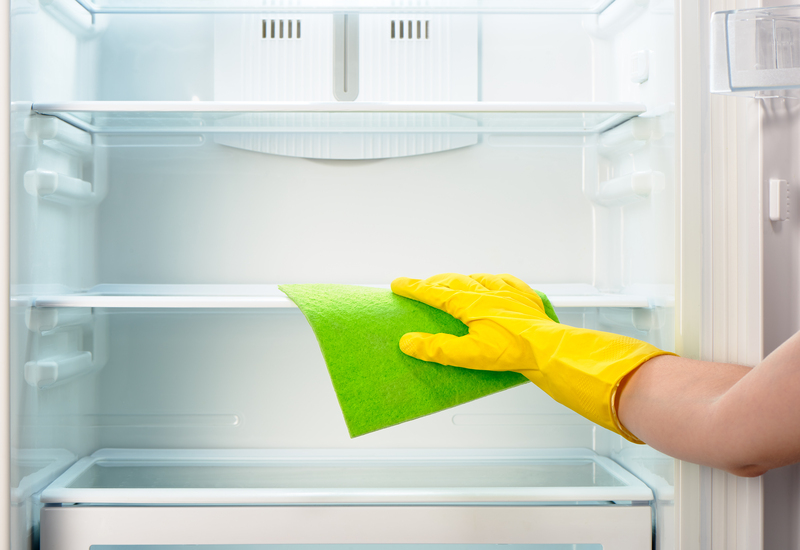Clean and Green: Eco Home Tips
Posted on 26/04/2025
In our ever-evolving quest to protect our planet, adopting eco-friendly habits in our daily lives has become increasingly imperative. One of the most significant areas where we can make a positive impact is in our own homes. By implementing green practices, we help conserve resources, reduce pollutants, and foster a healthier living environment for ourselves and future generations. This article presents comprehensive tips for establishing a clean and green home.
Energy Efficiency
1. Lighting
One of the simplest ways to save on electricity and reduce your carbon footprint is by switching to energy-efficient lighting. Replace traditional incandescent bulbs with LED or CFL bulbs, which use significantly less electricity and have a much longer lifespan. Natural lighting should be maximized during daylight hours by keeping curtains and blinds open, which also boosts your home's comfort and ambience.
2. Appliances
Opting for energy-efficient appliances can considerably lower your energy consumption. Look for appliances with the Energy Star label, which signifies that they meet or exceed federal standards for energy efficiency. Refrigerators, washing machines, dishwashers, and ovens are all available in energy-saving models. Regular maintenance and proper usage, like only running full loads in dishwashers and washing machines, also contribute to enhanced efficiency.
3. Heating and Cooling
Your home's heating and cooling systems are major energy consumers. To reduce energy usage in this area, invest in a programmable thermostat which can automatically adjust temperatures during the day based on your routine. Insulating your home properly is also crucial; sealing drafts and ensuring good insulation in walls, floors, and attics keeps your home more comfortable and reduces heating and cooling needs.

Water Conservation
Implementing water-saving techniques not only helps conserve a precious resource but also reduces your utility bills. Here are some effective strategies:
1. Fixtures and Faucets
Install low-flow showerheads, faucets, and toilets to significantly reduce water usage without sacrificing performance. Modern low-flow fixtures are designed to maintain high efficiency and comfort while saving water. Additionally, fixing leaks promptly can save thousands of gallons of water each year.
2. Landscaping
Watering lawns and gardens constitutes a large portion of household water use. Opt for drought-resistant plants and native species that require less water. Implementing drip irrigation systems or soaker hoses can also minimize waste by delivering water directly to the roots of the plants, reducing evaporation and runoff.
3. Rainwater Harvesting
Collecting and using rainwater for your garden and outdoor cleaning can substantially cut down on water usage. Installing rain barrels under gutter downspouts is a simple and inexpensive method of harvesting rainwater. This collected water can be used for various non-potable purposes, easing the strain on your primary water supply.
Waste Reduction
1. Reduce, Reuse, Recycle
The three Rs--Reduce, Reuse, and Recycle--serve as the cornerstone of waste management strategies. Start by reducing your consumption of single-use plastics and opting for reusable alternatives, such as cloth bags, stainless steel straws, and glass containers. Reusing items creatively can give them a second life and keep them out of landfills. Lastly, recycling properly can significantly reduce the waste that enters trash streams, conserving resources and reducing pollution.
2. Composting
Composting is an effective way to manage organic household waste and produce nutrient-rich soil for your garden. Set up a compost bin or pile in your yard to turn kitchen scraps and yard waste into valuable compost. This process reduces landfill waste and lowers greenhouse gas emissions from decomposing organic matter.
3. Smart Shopping
Being mindful of your purchases can also play a crucial role in waste reduction. Opt for products with minimal packaging, and buy in bulk when possible to avoid excessive waste. Choose items made from recycled materials and support companies with sustainable practices.
Eco-friendly Cleaning
1. Natural Cleaners
Commercial cleaning products often contain hazardous chemicals that can harm the environment and our health. Switching to natural, non-toxic cleaners can significantly reduce your household's environmental impact. Common household items like vinegar, baking soda, and lemon juice can be used to create effective and eco-friendly cleaning solutions.
2. Green Cleaning Tools
Using reusable and sustainable cleaning tools, such as microfiber cloths, bamboo scrub brushes, and mop pads, can also minimize waste. These tools are often more durable and efficient than their disposable counterparts, making them a better option for both your home and the planet.
3. Air Quality
Maintaining good indoor air quality is essential for a healthy home. Avoid using aerosol sprays and artificial air fresheners, which can release harmful chemicals into the air. Instead, opt for natural alternatives like essential oils or indoor plants, which can help purify the air and add fresh scents to your living space.
Sustainable Living
1. Renewable Energy
Harnessing renewable energy sources, such as solar or wind power, can greatly reduce your household's reliance on fossil fuels and lower your carbon footprint. Installing solar panels on your home can provide a clean, renewable source of electricity while potentially lowering your energy bills. Additionally, community solar programs and green energy plans from your utility provider are alternative options for accessing renewable energy without the need for upfront investment.
2. Green Building Materials
When building or renovating your home, opting for sustainable and eco-friendly materials can make a significant difference. Choose materials that are responsibly sourced, have low environmental impact, and contribute to a healthier indoor environment. Examples include reclaimed wood, bamboo, recycled metal, and low-VOC (volatile organic compound) paints and finishes.
3. Efficient Space Design
An efficiently designed living space can enhance your home's sustainability. Optimize natural light and ventilation, incorporate energy-efficient fixtures and green building materials, and create multifunctional spaces that maximize utility while minimizing resource consumption. Implementing these principles promotes a more comfortable and eco-friendly living environment.

Community Engagement
1. Local Sourcing
Supporting local businesses, farms, and artisans helps reduce the environmental impact of transportation and promotes a sustainable local economy. By purchasing locally-produced goods, you can reduce your carbon footprint while enjoying fresh, high-quality products and supporting your community.
2. Eco-friendly Transportation
Reducing your reliance on fossil-fuel-based transportation is another significant way to live more sustainably. Utilize public transportation, carpool, bike, or walk whenever possible. If you need a personal vehicle, consider investing in a fuel-efficient or electric car to minimize your environmental impact.
3. Community Initiatives
Engaging in community initiatives that promote sustainability and environmental awareness can amplify your efforts and inspire others to adopt green practices. Participate in local clean-up events, conservation projects, or sustainability workshops. Sharing your knowledge and experiences with friends, family, and neighbors can help create a collective movement toward a cleaner, greener future.
Conclusion
Creating a clean and green home is a multifaceted effort that requires conscious choices and sustainable practices. From energy efficiency and water conservation to waste reduction, eco-friendly cleaning, and sustainable living, every small action contributes to a healthier planet. By implementing these tips and inspiring others to do the same, we can collectively make a significant impact on the environment, ensuring a brighter future for generations to come.
Latest Posts
Expert Tips for Hassle-Free Bathroom Cleaning
A Gleaming Finish: Tried and True Methods for Banishing Grease from Your Oven
Changing Sheets Best Practices






